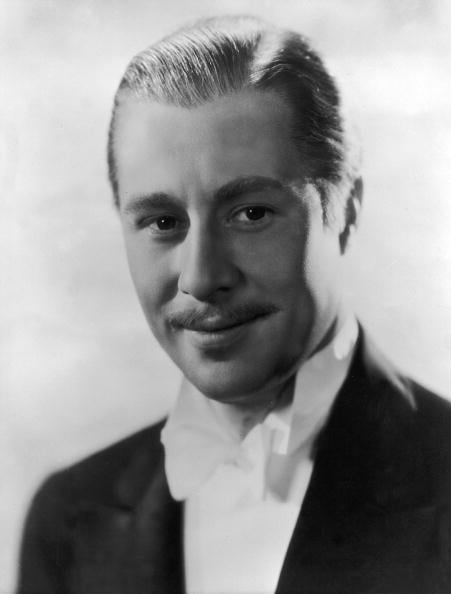What Was Don Ameche's Net Worth?
Don Ameche was an American actor, comedian, and vaudevillian who had a net worth of $5 million at the time of his death in 1993. That's the same as $10 million in today's dollars. In the early 1940s, Don was one of the highest-paid actors in the world. In 1943, SEC filings by Fox showed that Ameche was the studio's highest-paid star, with annual earnings of $247,667. Earning $247,667 in 1943 is the same as earning $4.5 million per year today. The only person who earned more at the studio was company President Spyros Skouras, who made $253,000.
Don Ameche's career spanned nearly 60 years and started out in vaudeville. Ameche starred in several films, including "Dante's Inferno," "Ramona," "One in a Million," "Alexander's Ragtime Band," "The Three Musketeers," "The Story of Alexander Graham Bell," "Moon Over Miami," "Heaven Can Wait," "Wing and a Prayer," "Greenwich Village," "Columbo: Suitable for Framing," "Trading Places," "Cocoon," "Harry and the Hendersons," "Coming to America," "Cocoon: The Return," and "Corrina, Corrina." Ameche won an Academy Award for Best Actor in a Supporting Role for "Cocoon" in 1985. In 1960, he received two stars on the Hollywood Walk of Fame for Television and Radio. Don Ameche passed away on December 6, 1993, at 85 years old, from prostate cancer.
Early Life
Don Ameche was born Dominic Felix Amici on May 31, 1908, in Kenosha, Wisconsin. He later began going by Ameche when he began working in entertainment. His father, Felice Amici, was a bartender from Montemonaco, Marche, Italy, while his mother, Barbara Etta Hertel, was of Scottish, Irish, and German ancestry. Don was the second oldest of eight children, and he grew up with his three brothers and four sisters. He attended Marquette University, Loras College, and the University of Wisconsin-Madison. While at Wisconsin, he participated in theater and developed his interest in acting.
Career
Ameche got his break when a lead actor for a stock company production of the play "Excess Baggage" did not show up to perform. A friend of Don's persuaded him to stand in for the missing actor, and Ameche did so. He enjoyed the experience and decided to pursue more work. He was cast in the lead role in "Jerry for Short" in New York. Following that experience, he joined a vaudeville tour.
Ameche then moved to Chicago, where he began a career in radio by joining the show "Empire Builders." In 1932, he became the leading man on two other Chicago radio programs – the dramatic anthology "First Nighter" and the soap opera "Betty and Bob."
By the late 1930s, Don started landing roles in Hollywood. He was brought to Hollywood by 20th Century Fox producer Darryl Zanuck. He often played romantic leads opposite many of the top female stars of the era. In 1939, he played the title character in "The Story of Alexander Graham Bell." The film led to the use of the word "ameche" as juvenile slang for a telephone. The same year, Don also was the leading man in "Hollywood Cavalcade" and played the real-life figure Stephen Foster in "Swanee River." In 1940, he appeared in three major films – "Lillian Russell," "Four Sons," and "Down Argentine Way." That year, he was voted the 21st-most-popular star in Hollywood.
In 1941, Ameche appeared in films like "That Night in Rio," "Moon Over Miami," "Kiss the Boys Goodbye," "The Feminine Touch," and "Confirm or Deny." The following year, he appeared in "The Magnificent Dope" and "Girl Trouble." In 1943, Don starred in "Happy Land." The following year, he appeared in "Wing and a Prayer" and "Greenwich Village."
In 1945, Ameche appeared in "It's in the Bag!" and "Guest Wife." In 1946, he had a role in "So Goes My Love," followed by a role in "That's My Man" in 1947. He finished the decade by appearing in "Sleep, My Love" in 1948 and "Slightly French" in 1949.

Getty Images
Ameche continued appearing on screen in the 1950s but also began taking more and more theater roles. In 1954, he appeared on stage in "Hazel Flagg" and then in "Silk Stockings" in 1955. A few years later, he appeared in "Holiday for Lovers" and "Goldilocks." In 1961, Don had a role in "13 Daughters." He appeared in "How to Succeed in Business Without Really Trying" in 1966 and "Henry, Sweet Henry" in 1967.
In the 1970s, his stage career continued to grow. He appeared in "The Moon is Blue," "No, No, Nanette," "Never Get Smart with an Angel," "Mame," and "Life with Father." He then took a lengthy break from stage work before appearing in "Our Town" in 1989.
Films he appeared in during the 1960s and 1970s include "A Fever in the Blood," "Rings Around the World," "Picture Mommy Dead," "The Boatniks," and "Suppose They Gave a War and Nobody Came." In 1971, he had a role in an episode of "Columbo."
Ameche became quite busy again in the 1980s. In 1985, he appeared as Art Selwyn in "Cocoon." For his work, he won the Oscar for Best Supporting Actor. Other films he appeared in that decade include "Coming to America," "Harry and the Hendersons," "Things Change," and "Cocoon: The Return."
In the 1990s, Ameche appeared in "Oddball Hall." He also appeared in an episode of "The Golden Girls." He also voiced a character in "Homeward Bound: The Incredible Journey" in 1993.
Personal Life and Death
Don was married to Honore Prendergast from 1932 until her death in 1986. Over the course of their marriage, they had six children. Ameche followed the Roman Catholic faith and was a Republican. He supported the campaign of Thomas Dewey in the 1944 United States presidential election and Dwight Eisenhower during the 1952 presidential election.
From 1946 to 1949, along with a number of other Los Angeles entertainment figures like Bing Crosby and Bob Hope, Ameche owned the Los Angeles Dons of the All-American Football Conference, a rival to the National Football League. He was instrumental in forming and leading the ownership group and initially served as the team's president.
In his mid-80s, Ameche was diagnosed with prostate cancer. On December 6, 1993, he passed away at his son Don Jr.'s Scottsdale home at the age of 85. Don was cremated, and his ashes are interred at Iowa's Resurrection Catholic Cemetery.








